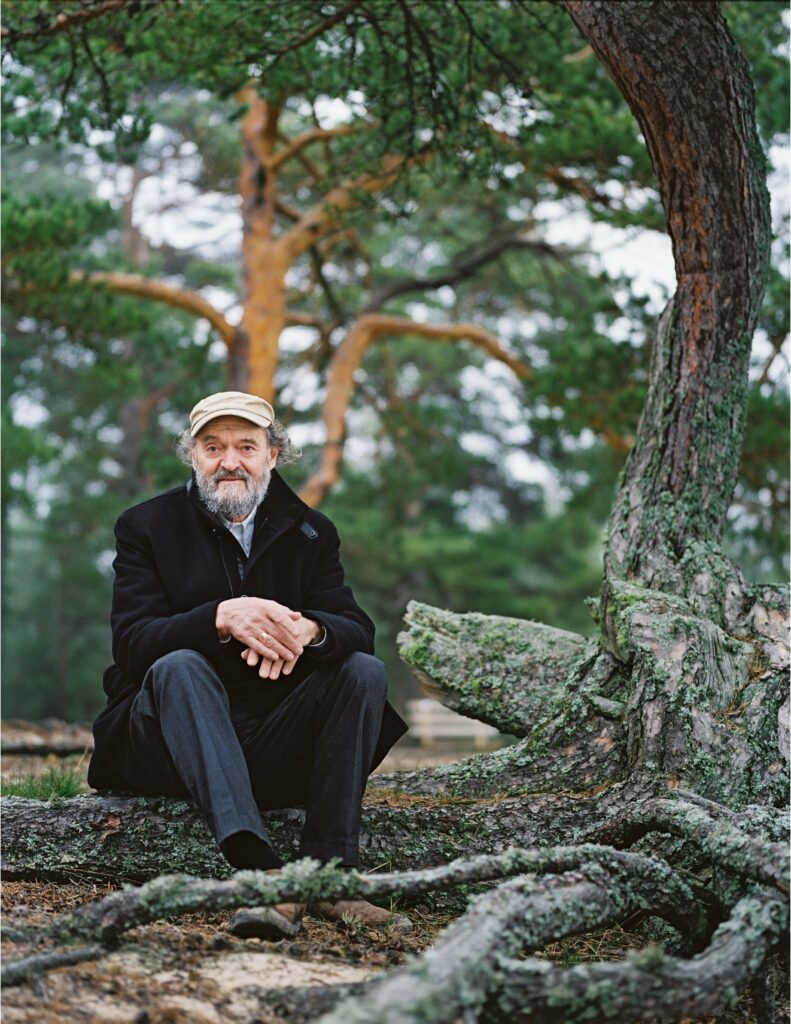Arvo Pärt is the most renowned member of the Estonian Academy of Sciences and the most performed composer of contemporary classical music in the world.
His work has significantly expanded the boundaries of musical understanding. The timeless beauty and profound spiritual message of his music have touched and influenced listeners worldwide, regardless of nationality, cultural background, or age.
Arvo Pärt was born on September 11, 1935, in Paide. After concluding his studies at Rakvere Secondary School No. 1 in 1954, he pursued composition at the Tallinn Music School. His studies, however, were interrupted by military service. After completing his service, he enrolled in Heino Eller’s composition class at the Tallinn State Conservatory, graduating in 1963.
This period roughly coincides with his early so-called modernist works, which can be considered brilliant experiments distinguished – regardless of style or technique – by precise and compelling dramaturgical concepts, highly concentrated musical material, and polished form. Between 1960 and 1970, he was also one of Estonia’s most prolific composers of film music.
The years 1968–1976 mark a period of crisis in Pärt’s creative life, during which he ceased composing and immersed himself in the study of early music. In 1976, he developed a completely new and original musical language – tintinnabuli, which is rooted in deeply personal religious inspiration. He has continued composing in this style to the present day.
In 1980, Arvo Pärt emigrated with his family to Vienna, and a year later they moved to Berlin. Since then, he has composed continuously without significant interruption. His work during this time has focused primarily on vocal pieces based on liturgical or other Christian prayer texts. This period also marked the beginning of his long-standing collaboration with the record label ECM, which has brought Pärt’s music to a wide international audience. His compositions quickly entered the repertoire of numerous prominent festivals, orchestras, and ensembles, and were broadcast on television and radio. In 1984, ECM released the album Tabula Rasa, which laid the foundation for the ECM New Series. All first recordings of Pärt’s most significant works have since been released in this series.
After Estonia regained its independence in 1991, Arvo Pärt reestablished his connection with the country and its musical life. Over the following decade, his compositions included around 30 arrangements of earlier works for new ensembles, as well as about ten original new compositions. Since 2010, Pärt has been living permanently in Estonia. That same year, the Arvo Pärt Centre was founded in Laulasmaa at the initiative of Arvo and his wife Nora Pärt, with the aim of creating the composer’s personal archive. The Centre, in which the composer and his family are also involved, serves as a creative meeting place for all who are interested in his music and philosophy.
Arvo Pärt has been nominated for the Grammy Award thirteen times, winning twice – in 2007 and 2014 – for recordings of his music. He has also received numerous honors and distinctions, including the Praemium Imperiale from Japan’s Imperial Family (2014) and the Ratzinger Prize (2017). Since 2011, he has been an elected member of the Estonian Academy of Sciences and holds honorary memberships and doctorates from numerous music academies and universities.
